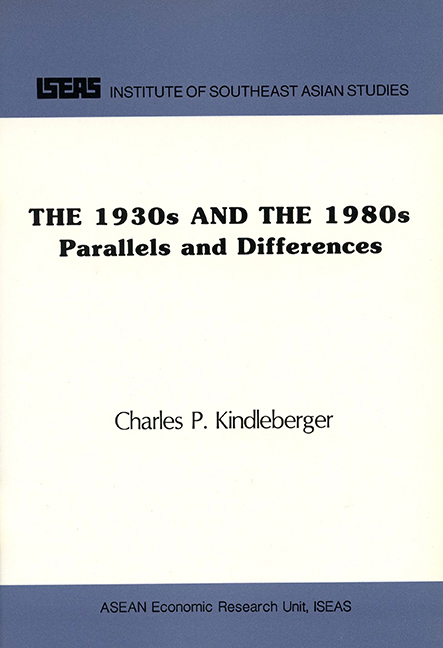Question and Answer Session
Published online by Cambridge University Press: 21 October 2015
Summary
Question
The United States needs to borrow from abroad as long as its budget deficit persists. But then it doesn't like having current account deficits, particularly trade deficits which are the counterpart of the surpluses that Japan, the NICs, and Germany are enjoying because these are the real counterpart of the borrowing. So, at the same time the United States is pressurizing these countries which have surpluses with it to cut down their surpluses. At the same time it wants to borrow money from them. Can you tell us how to achieve this impossible trick?
Professor Kindleberger
No, I can't square the circle either. But I quite agree that the pressure of the United States to try to force countries to accept more U.S. exports should be based on microeconomics, not macroeconomics. I have always objected to mixing the two up. In the world of second best, you may have to use microeconomic devices to shape macroeconomics and I completely agree that in an absorption model of the balance of payments, it is the lack of savings in the United States which is producing the deficit. Some blame it exclusively on the federal budget but the decline in savings on the part of households is also to blame. We have had a spending mania for some years, personal savings have gone down from something like 7 per cent national income to 2.5 of disposal income. This is not just an odd happenstance but goes deeper. People in the United States want to get rid of the budget deficit and the trade deficit, but they are not willing to do it by willing the means. Look what happened to Mondale in the election of 1984 when he proposed a tax increase. And notice how every candidate this year is staying away from talking about taxes. My tax accountant tells me that there certainly is going to be a tax increase by July, one he thinks it is inevitable. But I would think that in an election year it is inevitable that you won't.
- Type
- Chapter
- Information
- The 1930s and the 1980sParallels and Differences, pp. 15 - 24Publisher: ISEAS–Yusof Ishak InstitutePrint publication year: 1989



